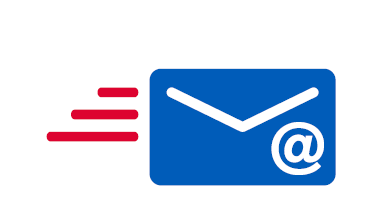Today, we send a package or letter in the blink of an eye. We hardly stop to question whether or not the item will be delivered to the intended recipient. However, for both personal and business mailing, there is a part of the mailing process that deserves a second look—making sure you have the correct address. Address verification solutions can help ensure that the United States Postal Service (USPS), FedEx, and the United Parcel Service (UPS) are able to get your items where they are going, but how do you choose which one is right for your shipping needs?
Take a look at some frequently asked address questions before your next trip to the mailbox.
Why do I need to verify addresses? Validating postal addresses is important for a number of reasons. We've all had packages or letters get lost in the mail. Making sure that the address you're sending to is valid and deliverable is an easy step to ensuring the recipient doesn't miss out on their package or critical communication. Plus, if you're an organization who sends a lot of mail, you can enjoy mailing discounts by proving that you are validating addresses before shipping! Some of the benefits of using address verification software to collect manage and update address records are: ensuring a good customer experience, reducing costs and eliminating wasted spend on postage, and increasing business performance.
What are the differences between residential and business deliverability? Residential and business deliverability are defined differently depending on the carrier. This complexity can be further compounded when a particular building has businesses on the bottom floors but the upper levels are residences. In this case, it’s a business, but is likely classified as a residential address. Organizations should pay attention to the difference between residential and business delivery information because of the shipping rates. Depending on the carrier, there can be a significant difference in price for residential and business deliveries. For example, there is a residential surcharge for FedEx/UPS, but no surcharge for USPS. The rate depends on value of the item and where it’s being shipped. That being said, it is probable that things being shipped to an office will almost always be FedEx/UPS.
What is Address Type Indicator (ATI)? ATI is a data element that is available with our enhanced USA address data set and is used to categorize a mailing address as a business, residence or mixed-use address. Companies use ATI to make more cost-effective decisions when choosing shipping options.
What is Residential Delivery Indicator (RDI)? RDI is a data set that is specific to the USPS and determines whether an address is a residence or a business. The data set is able to identify this without knowing the specific person who lives there, or company name of the business. It is determined based on postal carrier feedback at the address level.
How do carriers manage rural delivery areas? Each carrier treats address verification differently because they will only deal with the addresses they want to deal with as opposed to every single address that exists. For example, FedEx/UPS will not deliver to PO boxes, but USPS does. Often, retailers prefer to have a contract with a single carrier that is not USPS, therefore they won’t ship to PO boxes, which can be limiting to customers in rural locations where PO boxes are more common.
How to they manage urban delivery areas? When delivering in urban areas, two main roadblocks are mailboxes and buildings that reside on the corner of two streets. USPS only delivers to a physical mailbox. If a building doesn’t have a mailbox, they won’t deliver. Buildings on the corner of a crowded urban area will sometimes have two addresses, and USPS will only deliver to one of those addresses. FedEx or UPS will deliver to both addresses. For example the Experian Data Quality office in Boston is located at the corner of Lincoln Street and Summer Street. While our physical mailing address is 125 Summer Street, the loading dock is located on Lincoln Street which has a different address. In this example, USPS will deliver to our 125 Summer Street address, but not to our address on Lincoln Street. As you can imagine, if we are expecting a large shipment or freight, this can cause confusion and pricey address change fees depending on the carrier chosen to ship to us!
Address verification allows businesses to ensure that only accurate, deliverable addresses enter their database and keep their system clean and up to date. To learn about our best-in-class address validation solutions, visit our address verification page or explore additional resources, such as our free address lookup tool.
Want to take our address verification solutions for a spin? Give one of our demos a try!
Check it out






